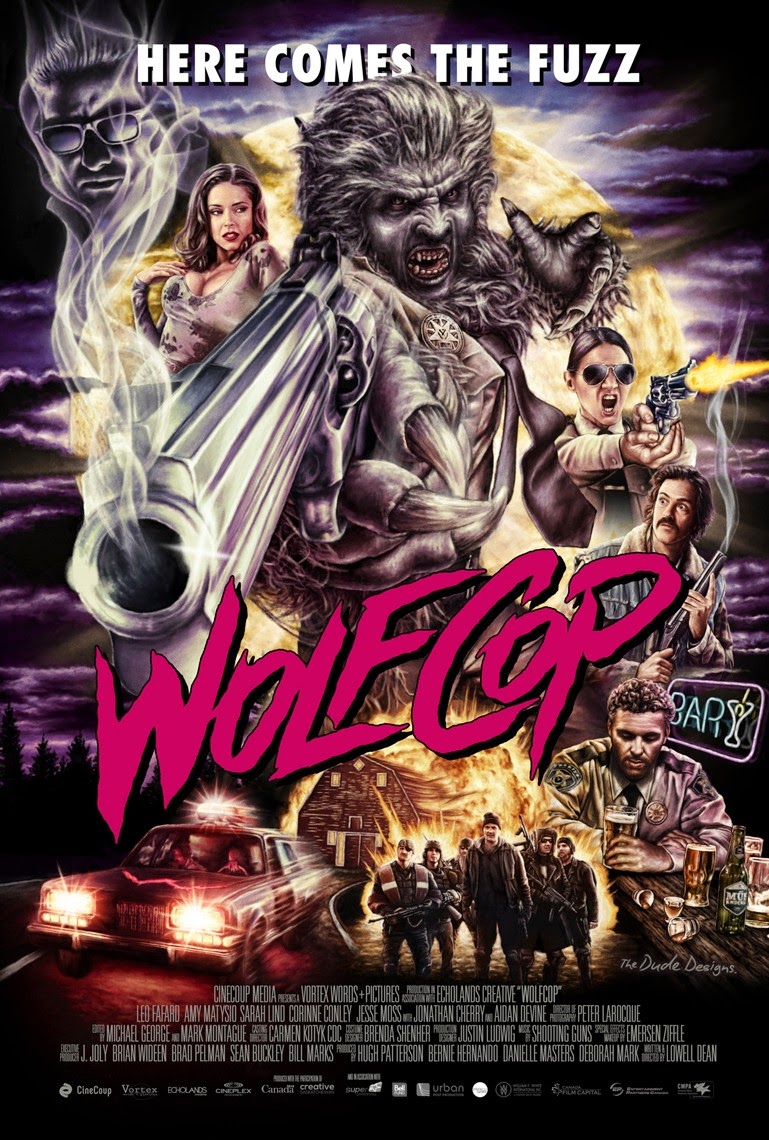 Without knowing anything about the movie before seeing it, and judging entirely based on the title and the movie poster itself, you can and do expect a fair amount of cheese. And you get it, in spades. I certainly sat down and started watching this with the full expectation of a terrible movie and yet again, not so surprisingly, I thoroughly enjoyed it. The movie opens on Leo Fafard playing Lou, our soon to be titular wolf cop, waking up, hungover with a woman by his side in bed. The first thing you notice is that this film is not going to be subtle: Lou's an alcoholic to an extreme. And he's a cop, so seeing him drink on the job forces you to detest him, of course, but after the film continues to drive home his alcoholism, you can't help but laugh at the absurdity of it all.
Without knowing anything about the movie before seeing it, and judging entirely based on the title and the movie poster itself, you can and do expect a fair amount of cheese. And you get it, in spades. I certainly sat down and started watching this with the full expectation of a terrible movie and yet again, not so surprisingly, I thoroughly enjoyed it. The movie opens on Leo Fafard playing Lou, our soon to be titular wolf cop, waking up, hungover with a woman by his side in bed. The first thing you notice is that this film is not going to be subtle: Lou's an alcoholic to an extreme. And he's a cop, so seeing him drink on the job forces you to detest him, of course, but after the film continues to drive home his alcoholism, you can't help but laugh at the absurdity of it all.It's no spoiler that he becomes a werewolf, as suggested by the title of the movie. And it is brilliant. Just brilliant. I love these werewolf films, and love that the film spends so much time on his initial transformation. It's disgusting. As it should be. They selectively choose what we see, to let our imaginations run just a bit wild with horror before the full reveal and give the film makers credit for their achievement in fantastic makeup and special effects with such a modest budget. With his new found abilities, Lou takes the high road and decides to make up for his lackluster human morals by fighting crime in his wolf form.
WolfCop answers all the questions that we didn't know we were asking: What part of you transforms to wolf first? Can werewolves eat anything other than people? How long can a person survive without a face? Can werewolves have sex? Or more importantly, make love?
We're treated to a delicious montage of gore, action and humour with scene after scene of ridiculousness. Of course, the movie can't take itself too seriously, and maintains a short run time. It's not going to overstay its welcome nor linger on any poor scenes before advancing onto the next: this movie knows what its doing and it gets the job done well.
We're left wanting more, and the movie promises a return. The sooner the better!

